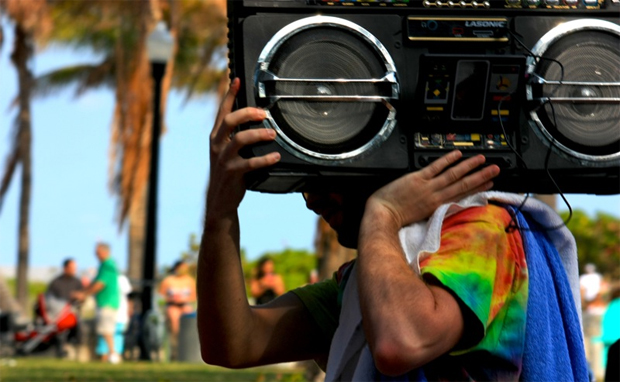
Digital music service Rdio today introduced free, on-demand streaming music--"free" being the key point here. No registration. No credit cards. No downloads. And best of all, no ads. The San Francisco-based startup is providing instant access to its catalog of more than 12 million songs. For no cost.
The catch? For now, there is none. As the subscription music space heats up--earlier this week Rhapsody acquired Napster, and last month Spotify made a big splash at Facebook's f8 developer conference--Rdio is looking to gain an edge. The company, which raised about $17.5 million in its last funding round, has decided to subsidize its service to provide users with free and ad-free "dynamic" access to its music in order to boost its freemium-to-premium conversion rate.
"Once people get in the door, we've found they love our service," says CEO Drew Larner. "But getting people in the door is the challenge. We believe this will result in getting a lot more people to use Rdio, and hopefully get a lot more people to convert and pay. So we're putting our money where our mouth is."
Larner calls the new free service an experiment in customer acquisition and marketing. Rhapsody, Spotify, and Rdio offer similar subscription plans: It's roughly $4.99 for unlimited music access from a browser or desktop, and $9.99 for unlimited mobile access and offline listening. But to start, Rdio is free, plain and simple, though access is limited. (Rdio's competitors, on the other hand, take a different approach to luring in paying customers. Rhapsody offers customers a free 30-day trial, while registered members of Spotify can access all music for free but must deal with both audio and visual ads.) The company is willing to subsidize use for a certain amount each month, and for a certain number of months.
Just how much exactly? "That's the question of the moment," Larner says. He calls the allotment "dynamic," and adds that the company will track how much usage it takes to convert a free user to a paying customer. That means if a freemium user barely takes advantage of the offer from month to month, Rdio is less likely to limit usage--there's still the opportunity for he or she to get addicted to the service. But if a user continues to max out usage each and every month, it's clear that user is not so likely to become a paying customer.
"After a certain amount of time, if someone is not willing to pay, we're going to be faced with having to tell them that their free use is up--if they want to keep going, they'll need to pay," Larner says.
The experiment is due in large part to Facebook. As many music services continue to integrate with the world's largest social network, Rdio hopes to use the platform to attract more users. "With free access, people will be listening to Rdio in their stream, and when someone clicks on the play button, Rdio will come up," Larner says. "It's completely frictionless. The music starts playing immediately. There's nothing to download--you just start listening." And there won't be any ads to annoy listeners, or requests to sign up for a trial period. ("You can make the counter argument that the ads [on Spotify] become so annoying that it forces you to subscribe," Larner says. "That's not the direction we want to take.")
Spotify's deep integration with Facebook has certainly helped Rdio's competitor. The Swedish-based startup reportedly gained more than a million users after unveiling the partnership.
Rdio hopes it can do the same--by subsidizing usage, gaining good will among consumers, and nixing all those annoying ads.
"Once people use our service, they really get hooked," Larner says. "That's what we're banking on."
[Image: Flickr user RiekHavoc]